An interview with Manuela Aguirre Botero
Posted by Mariana De Niz, on 31 October 2023
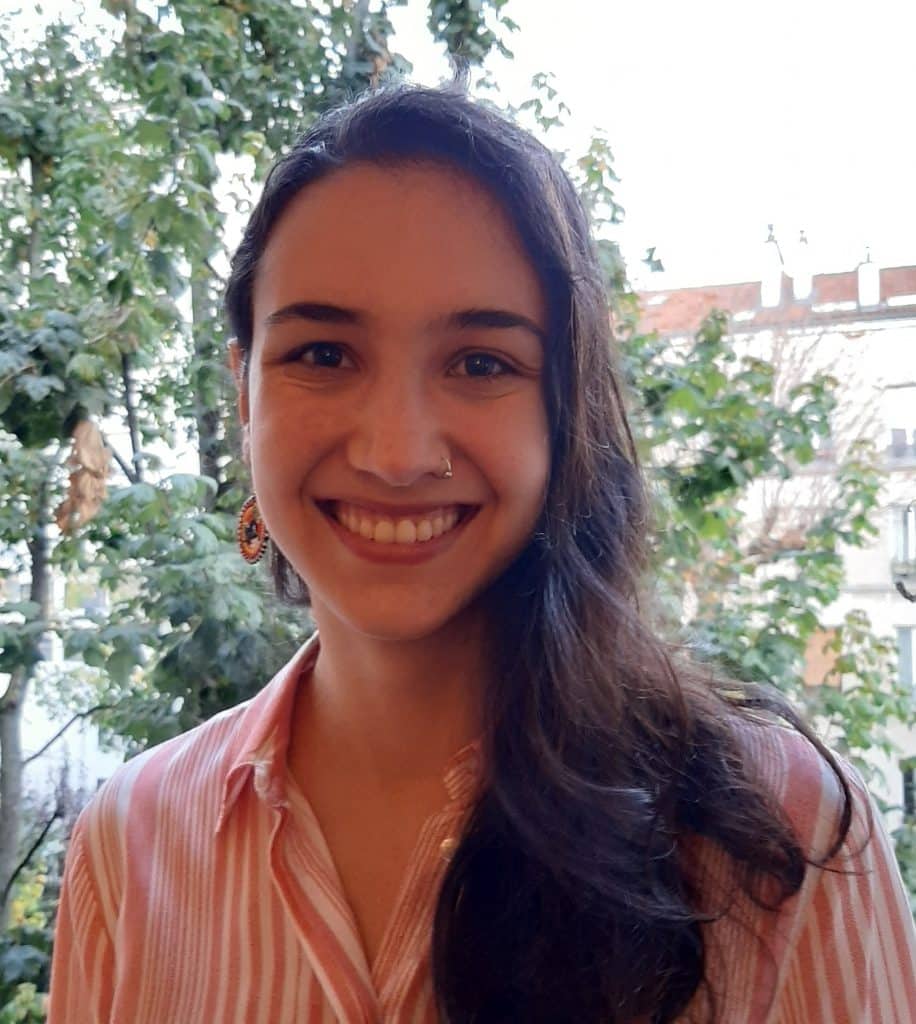
MiniBio: Manuela Aguirre Botero is a PhD student at Institut Pasteur, where she uses intravital microscopy and multiple other imaging methods to explore Plasmodium interactions with its hosts. Manuela started her career in Medellín, Colombia, where she studied at the German School, and first found her passion for science. She joined the University of Heidelberg for her early career, including her BSc and MSc, where she worked in world-renowned parasitology labs, including Prof. Christine Clayton’s, where she studied Trypanosoma spp., and Prof. Freddy Frischknecht’s, where she found her passion for microscopy. Still as a MSc student, Manuela did several internships in Colombia and at Institut Pasteur in Paris, where she had a chance to collaborate for the first time with Dr. Rogerio Amino – a leader in IVM and host-pathogen interactions. Manuela recently attended the prestigious BOP course at MBL in Woods Hole, USA, which brings together expert parasitologists from around the world. Manuela is keen to establish stronger scientific connections with Colombian scientists, and is excited to continue specializing as an imaging scientist in the field of parasitology.
What inspired you to become a scientist?
I think since I was a young child at school I always loved science, biology, and doing experiments. And I always loved University. My mom is a University professor, specialized in Anthropology and Archaeology. Although it’s a different field to the one I belong to now, still it was fascinating. When I was little, if no one could take care of me, I would join her in her classes or in the labs where she was working, and I’d listen to her giving class. So I was always part of this environment. I became interested in studying Biology because, probably like most of us, I had a wonderful teacher at school who made us love Biology. Thanks to him I participated at a Science Fair, and in his lab I did some practicals on Mycology too– I always loved studying microscopic things that look ugly and that most people don’t like 🙂 Still, once I finished high school, it wasn’t yet fully clear to me what I wanted to study: I considered Political Sciences or Biology. But I noticed that my talents were in the natural sciences, so I ended up deciding for Biology.

You have a career-long involvement in host-pathogen interactions, parasitology and microscopy. Can you tell us a bit about what inspired you to choose this path?
I believe my path has been guided by serendipity. I never really stopped to think about which repercussions my different choices would have. I just wanted to study what I felt passionate about – I didn’t see it as a job. I applied to Biology both in Colombia and in Germany because I wanted to explore both possibilities. I knew a bit of German, because I studied at the German School of Medellin in Colombia. I was accepted in both countries, to the Universities I wanted. I then decided to accept the offer in Germany to see if I would like it, and the University in Medellin would hold my place for a year, so I had the chance of coming back if I wanted to. In the end, I felt really happy in Germany. I didn’t join the Biology degree directly, but instead started with some German courses for a year together with the revalidation of some of my subjects. Afterwards I joined the degree of Biology in Heidelberg, which I truly loved. When I started studying Biology, I wanted to know everything about everything. I was super interested in animals, taxonomy, plants, physiology, developmental biology, etc. I wanted to identify what I really wanted to do, and when I had my practicals in microbiology and parasitology, I fell in love with these disciplines. I reaffirmed that I loved the micro-world and infectious organisms. Moreover, something that was in my mind is that infectious diseases are a big burden for public and veterinary health in my region – in Latin America. So I decided to take more classes in parasitology. During this time I attended a lecture by Prof. Christine Clayton, which fascinated my, and I decided to join her lab. I loved Trypanosoma brucei, which is her area of expertise: it’s an exciting combination of knowledge as they are both, micro-swimmers and infectious pathogens. I decided to stay in Heidelberg for my MSc degree, but it was at this point that I visited Prof. Freddy Frischknecht’s lab (who focuses on the malaria-causing parasite Plasmodium), and realized that I really wanted to be able to observe parasites, and his lab has great expertise in microscopy. At Christine’s lab during my BSc, the focus was more on the molecular biology, but for my MSc I wanted to focus on the organism itself, and I can’t think of a better tool than microscopy to do this. I started in Freddy’s lab working on TEM – it was difficult, but I loved it. At some point, I did one of my practicals abroad, in the lab where I currently do my PhD: Prof. Rogerio Amino’s at Institut Pasteur. I came to his lab to learn how to do intravital microscopy. It was at this point that I realized that what I really wanted to do was to image parasites live, in their natural context and within their host. Seeing how an organism behaves and changes its behaviour in real time in its natural habitat was wonderful. So when I came back to Freddy’s lab after a short internship at Pasteur Institut, I moved away from EM, and focused on dynamic imaging and fluorescence. I decided that for my PhD, I wanted to see live parasites, and so I joined Rogerio’s lab in Paris for this purpose. I should be finishing my PhD in one year, but there are still so many things I want to do.
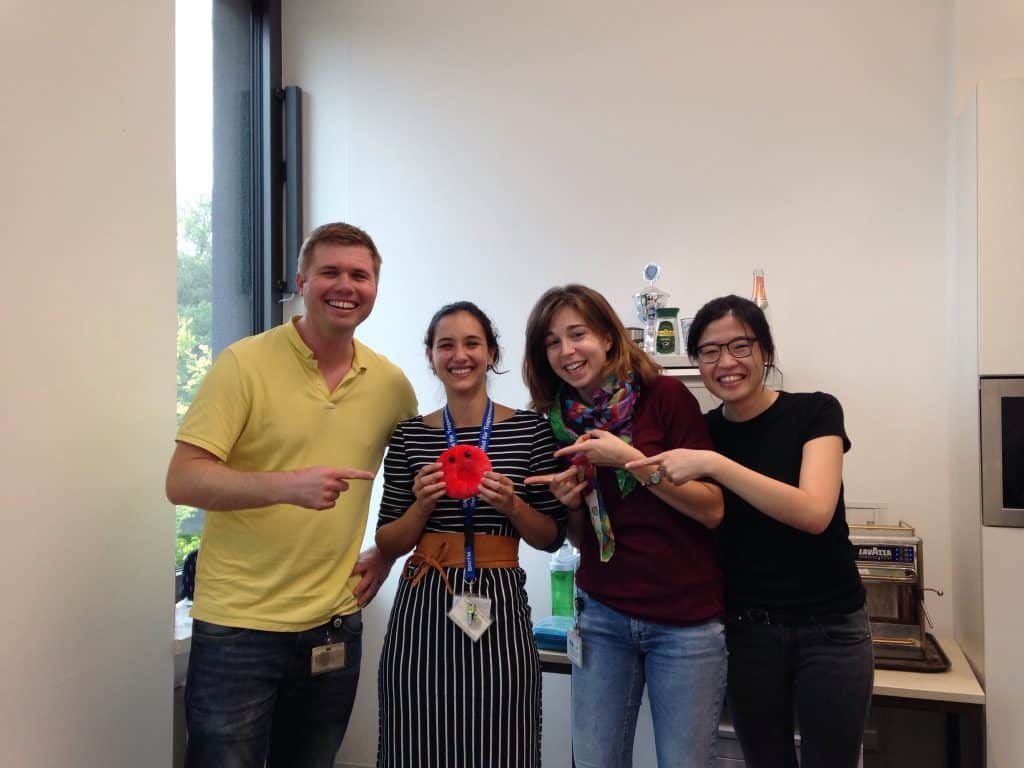
Can you tell us a bit about your day-to-day work as a PhD student at Institut Pasteur?
My day to day has been a metamorphosis throughout my PhD! My everyday work during my first year as a PhD student was different than in the second and third years. Nowadays, a typical day is I arrive early at the lab – I am a morning person, which is very productive because the lab is empty, and this gives me space to start my experiments. I’m also very well-organized and I like to plan things carefully, so within the first hour after arriving, I work on some Excel files where I write all my ‘to-do’ list. For me, a day is somehow wasted if I can’t start my experiment in the morning, and then continue it in the evening. I’m like a been in the lab – I prefer to make the most out of my time in the lab, and be super-efficient, without too many breaks, so that I can also enjoy my evening once I leave the lab. In summary, I start early in the morning, and then I work like a little ant until the working day ends. In the first year I felt a bit lost, in the second year I feel it was all more efficient, and now in my third year I feel there were a lot more of extra things to consider including a lot of paperwork and bureaucracies. I recently attended the prestigious Biology of Parasitism course in MBL, Woods Hole, where I learned a lot of new things. I thought this would help me identify and narrow down my interests for my future career, but I feel it did the opposite. I am now planning where to do a postdoc! I thought I would continue working on malaria, but I think there is so much that we don’t know about so many parasites. Now I am making time to think carefully about everything I learned at the BoP course, to decide where to go next, career-wise.
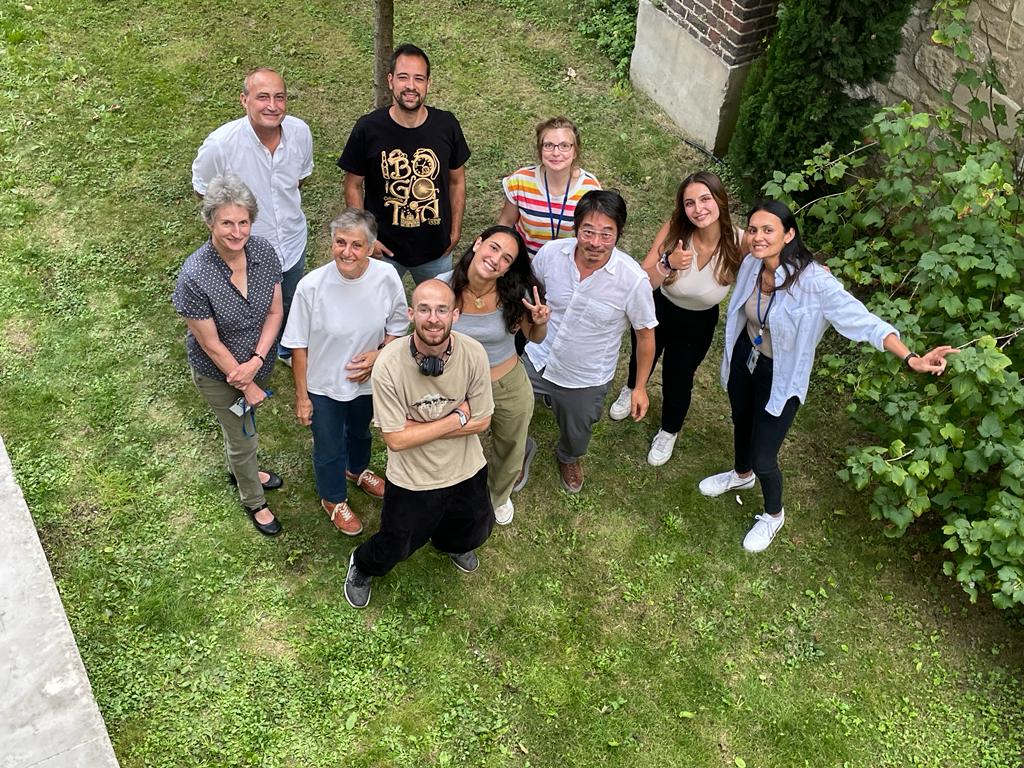
Can you tell us a bit about what you have found uniquely positive about becoming a researcher in Colombia, from your education years?
I loved my school! I really loved it. They gave me all the possibilities to learn whatever I wanted, without being too strict or too academic. One could do whatever one wanted – arts, sports, science, anything. We did many things in the outdoors. I think this, in combination with joining my mom at university, I got to see the good and the bad of the public university system including leaving university crying because of tear gas used in protests. This was all part of my childhood, but instead of scaring me, this made me love the university even more – this was my mom’s life, and I could see her passion. The university was a happy place for students – it was my mom’s students who would look after me when she was teaching, and they were great! For me studying was always something super exciting. Because of my mom’s job, I was at the German school which would start at 7am and finish at 4pm, so I was always there, and this was very positive. It was paradise for me!
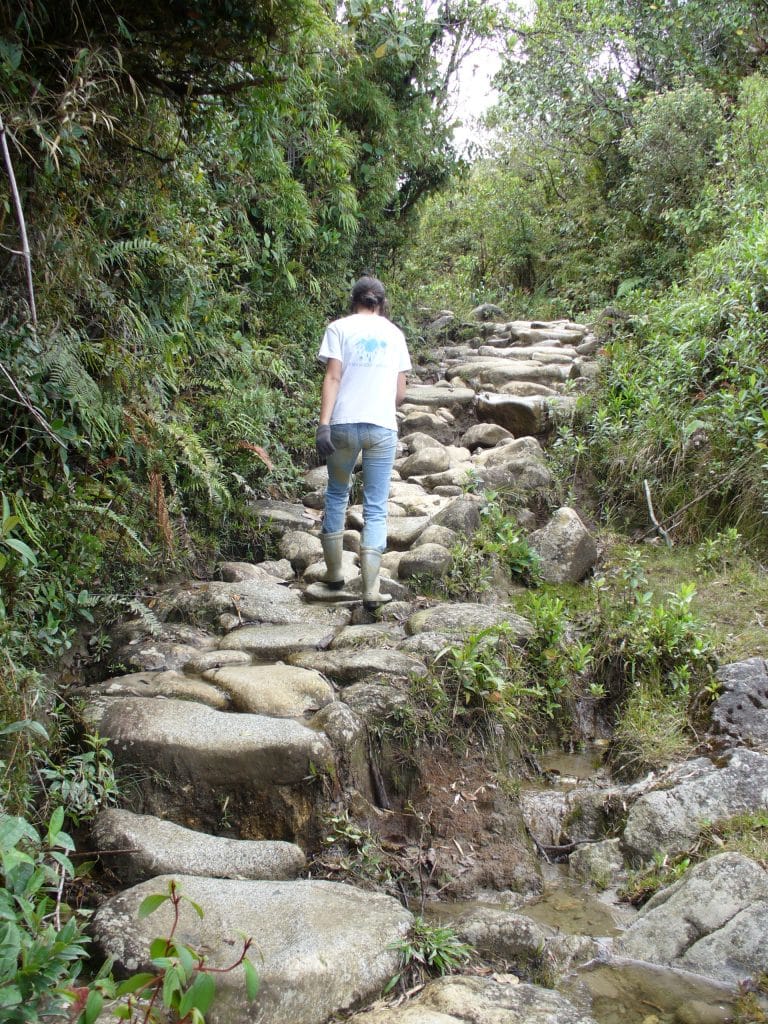
Did you have many opportunities to interact with other Latin American groups, outside of Colombia?
It’s been easy and not easy to do this! It’s easy because we Latin Americans tend to interact a lot with one another: you meet one of us, and you straight away meet another 10. But it’s not the same to meet than to interact scientifically. I am managing to do this better during my PhD, also because I’ve been here (in Paris) for a longer period of time than in my MSc degree, which lasts 1 or 2 years only. So, I feel I have managed to interact with other Latin Americans – and it’s important for me to do so, to understand what scientific questions they are addressing, their expertise, their interests, what their previous experiences have been, etc. Partly, I really am interested in knowing whether they want to go back to Latin America, to their countries, and do science there, which is something that crosses my mind many times. It’s also nice to talk to people with whom one shares background, language and experience! For example, you and I spoke a lot about our experiences, both, scientific and personal. It’s good to know other colleagues’ point of view. Another example is recently, at the BOP course, it was great for me to interact with Alvaro Acosta Serrano. I think now in my PhD I’m actively looking for a Latin American scientific network, to learn from one another, and support each other. I find it’s important for us to acknowledge the expertise in the region and fight back against a certain colonial way of thinking, which sometimes prevails in Latin America, in which people believe that things done abroad (including science), is better than the one done in our own country. I felt that I suffered a disconnection with Colombian science when I left my country, so during my MSc and PhD I did internships there for a few months. It wasn’t part of my degrees, but I went as an invited scientist.

Are there any historical events in Colombia that you feel have impacted the research landscape of the country to this day?
I think the political event that will change how science is done in Colombia happened one year ago, and it was when the first left-wing president was elected – this is the first time for the left to win, in the history of Colombia, which has always been ruled by right-wing parties. I think this will have a ripple effect, whether good or bad, in how many things are done, including science. It’s the first time that people dare to vote for ideas that are socio-democratic, and so I think both, the government will take a different approach to science, but equally, the general population is changing its views. So this election was ground-breaking and will likely have important repercussions for science.
Who are your scientific role models (both Colombian and foreign)?
My mom is one of them! For me there is no better scientist than my mom, even though she is in a different discipline. And them my three supervisors: Freddy Frischknecht has been pivotal in my career – super encouraging all the time. When I didn’t manage to join the MSc in Infectious Diseases, he encouraged me to join a different one, and he reassured me that I was capable of doing anything I set my mind to do. He also encouraged me to attend the BOP course for instance. Rogerio Amino (my PhD supervisor) also has been fantastic, and a great mentor. Christine Clayton was also a fantastic mentor – she has a very special place in my heart too.
What is your opinion on gender balance in Colombia, given current initiatives in the country to address this important issue. How has this impacted your career both at home and abroad?
Regarding Colombia, while I was there, I wasn’t very conscious about the big picture. Growing up, I was raised by my mom only, and so women in my life were protagonists -she was my role model always. Growing up, and speaking with her, I realized there are many difficulties for women there. There is a lack of balance in Colombia – and there is a hyper-sexualization. Having now lived abroad in Germany and France, I feel that in Colombia, women are much more involved at all levels, including leadership roles. I see that participation and women power is very present – more than what I have seen in Europe, in my opinion. This comes at a cost though – I feel women in Colombia including those in positions of power, be it because of culture or tradition, tolerate more microaggressions, misogyny, sexism, and unfair treatment than what I have seen women in Europe do. Many women in Europe speak out and put a stop much earlier to incorrect or unacceptable behaviour. In Europe I have also noticed gender imbalance. It’s really obvious that there is a leaky pipeline: there are many women in early career, and less and less as you reach positions of power. I feel that those who emphasize that ‘we are heading in the right direction because there are more women in the BSc and MSc positions’ are actually emphasizing the problem: if there are indeed more students, but not at all as many leaders, then the pipeline is leaky. The academic system in science is completely patriarchal. But I would be unfair in saying that nothing is being done. I have noticed progress – perhaps more so in France than in Germany. In France there are initiatives- at least the gender gap is acknowledged and spoken about. At Pasteur Institut, there is a group which meets regularly to discuss this topic, and has invited speakers and other activities. I still feel that a lot more is needed for true change – well beyond those just ‘patting’ the problem superficially. I think the younger generations are much aware of this problem, and much more outspoken about what they want. I see, though, that there is also a huge generational clash in the horizon. The new generations, just now becoming part of the workforce and the active scientific population, are now having to interact with the older generations, and this won’t be easy – ideologically, these are polar opposites.
Whether gender imbalance has impacted my career- definitely. Things I’ve been told, things I’ve heard colleagues of mine being told, etc. It makes me afraid to think that this is something I have to keep in my mind – in addition to the scientific career and scientific decisions themselves. Due to these treatments, I end up overthinking and posing myself more existential questions than I consider necessary. It has also positively impacted my career in that it has made me much more conscious about equity – not just about gender but about so many other things. It has also given me the opportunity to speak with a lot of interesting people, and it has helped me be happy – I take things better because I understand why it’s happening and where it’s coming from, as opposed to thinking it’s something about myself.
Have you faced any challenges as a foreigner if you have worked outside Colombia?
I think my path was different from the path of many German and French students. Already the fact that one needs visas, generates a lot of stress and occupies a lot of one’s thoughts and time. Regardless, I’ve always been very fortunate and largely privileged. But there were challenges nonetheless: my high school diploma wasn’t recognized because it was Colombian, so this delayed my entrance to University. I had to repeat several subjects. This was the first thing I found painful – that I literally repeated the same information, and the realization that my Colombian education was being undervalued. It wasn’t all bad though – I met wonderful people in this time, and I don’t regret doing it, but at the beginning I didn’t expect this, and was surprised that this happened. Beyond that, I’ve always been very sure of what I want to do, and nothing that people have ever told me stood in the way of what I wanted to do. Still, I faced a cultural shock in Germany. The whole first year of my career, I spent a lot of time thinking about this, questioning myself about how others see me, about what they think of me, and other things slowly turning into imposter syndrome. I felt many times that being different meant being inadequate. I wonder how this impacted my scientific development altogether, if I didn’t have to spend that time worrying about this, and instead focusing on my scientific growth. I regret nothing though, and nowadays I acknowledge I’m different, but this doesn’t bother me or makes me feel insecure. But this took several steps to mature and find myself and how I would fit in this environment.
Now the next thought that worries me is the topic of having children, and how this will impact my career. I don’t want to slow down in my work, and I know that science is still very patriarchal and man-oriented. I am worried. The women I have spoken to have made me realize they give more than 200%, they manage it, but because they give much more of themselves. This is where I have come to realize this extra effort has to come from me, and it makes me question why it has to come from me. So I am worried!
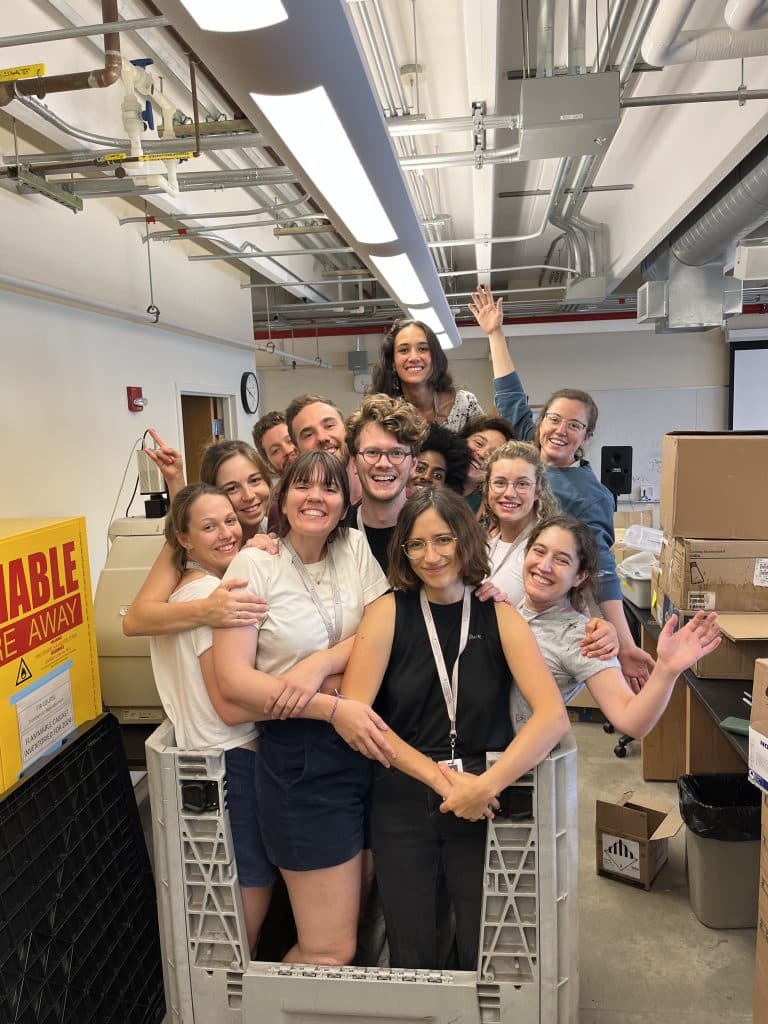
What is your favourite type of microscopy and why?
I don’t know because each day I discover new things, and then I fall in love with each new technique. At the moment, my favourite thing is IVM! I do this all the time. Still, when I learn about new techniques, two hearts form in my eyes, and I want to learn these new techniques. I get very excited. But right now, IVM it is. But it’s not the ultimate decision 🙂
What is the most extraordinary thing you have seen by microscopy?
I think there are two things that made my jaw drop. The first thing was when I saw Plasmodium sporozoites in the skin, with the capillaries marked – this was one of the nicest images/videos I’ve seen. The second time is when I did an expansion microscopy experiment with sporozoites, which also left me in awe.
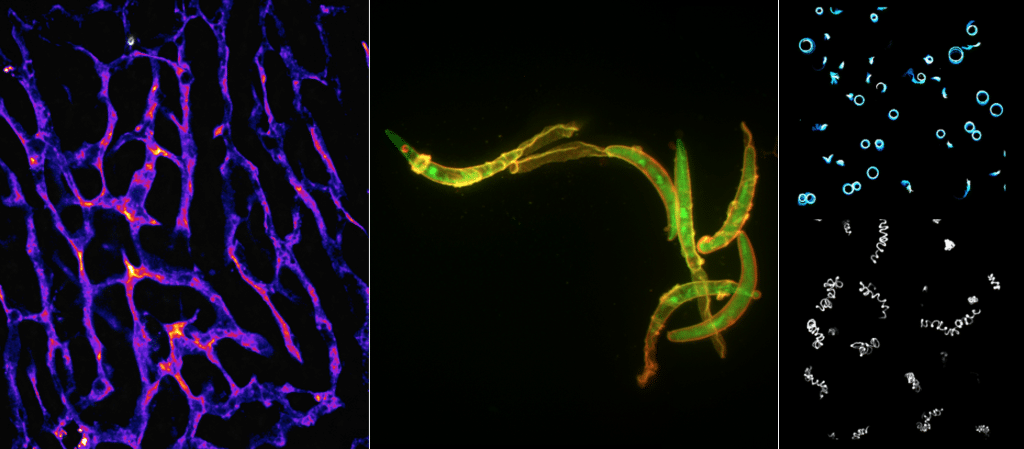
What is an important piece of advice you would give to future Colombian scientists? and especially those specializing as microscopists?
I think my general advice is that you should try. Sometimes we think too much: if I do this, what will my career be like? will I earn any money?, etc. And these are important questions because in many countries in Latin America, you can’t afford to have existential crises or afford to be unemployed – the state provides no aid, and usually one has family to support and who depend on one – be this children, parents, siblings or someone else. So my first piece of advice is to give it a try. If it doesn’t work, you can always change paths – no decision is forever. If you don’t try because you might regret it in the future, then this is what you will in fact regret – no decision is risk-free. Dare to try!
Where do you see the future of science and microscopy heading over the next decade in Colombia, and how do you hope to be part of this future?
I think as I mentioned before, the election I mentioned will mark a ‘before and after’ in science. The future is bright people in Colombia doing bright science. I think science in Colombia is good. In terms of microscopy I can’t have an opinion because I don’t know enough of the landscape in Colombia. I think we have a good basis to start, but we should see what happens in the next years. I hope to be an active member of science in Colombia, be this by staying abroad and establishing solid collaborations with scientists in my country, or coming back to the country. I feel eventually we should extend beyond our own country and foster collaborations with other countries too. I want to have an active role in this future.
Beyond science, what do you think makes Colombia a special place?
Colombia is a very special country because of its wealth in terms of diversity, both cultural and natural. The most biodiverse country in the world is Brazil due to its extension as well, but the most geo-diverse is Colombia. I think this is reflected in the people too – the diversity of people, cultures, accents, traditions, make Colombia incredible. Sometimes it’s hard to understand one another even though we’re from the same country, but this gives us incredible warmth, and great creativity. I think Colombia has a lot of potential.


 (No Ratings Yet)
(No Ratings Yet)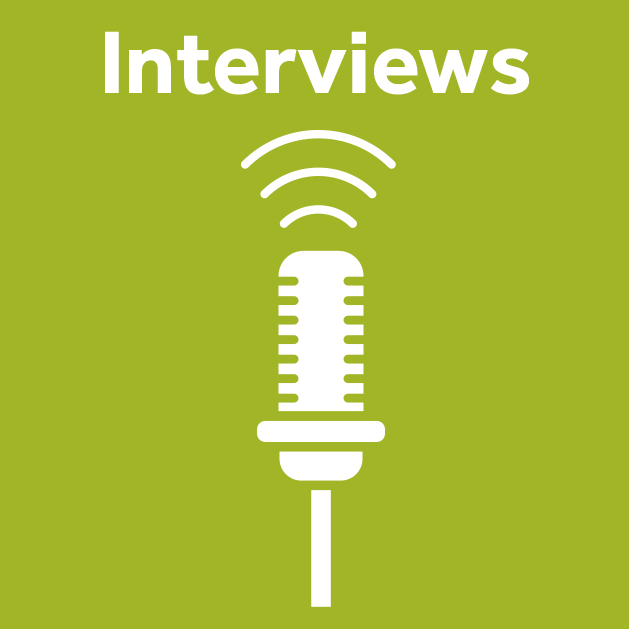
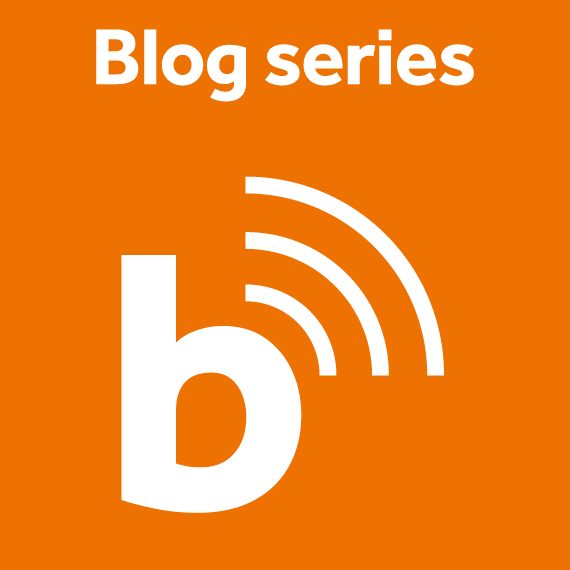
Hi, I enjoyed reading this interview. Found it very inspiring. My group has a postdoc and PhD student from Latin America and they are awesome. We learn a lot through the experience of people from different continents!